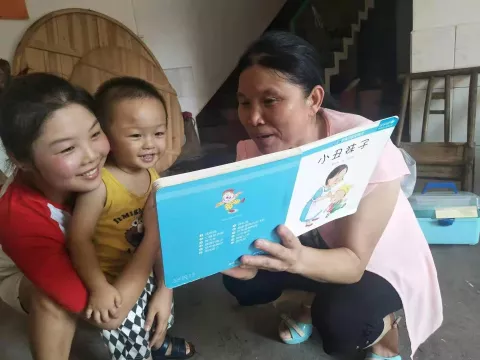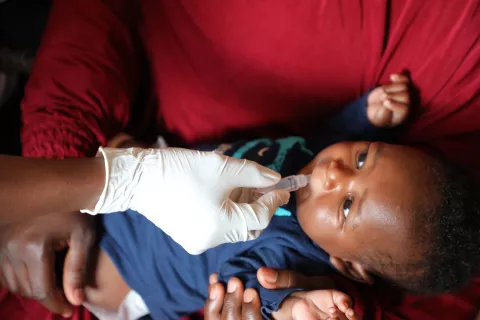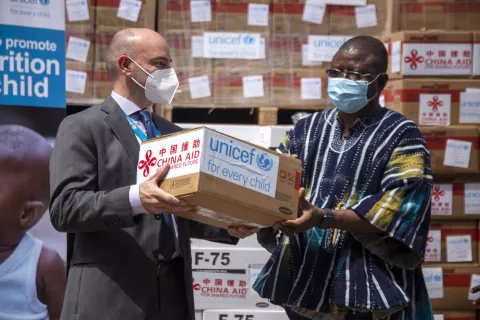Educating young children in China's remote ethnic communities
Educating young children in China's remote ethnic communities
- Available in:
- 中文
- English
"I used to sell eggs to buy instant noodles for my baby because I thought they were more nutritious." Zhang Xiaoyue, mother of a one-year-old girl said. "After attending classes, I realise that I was wrong. Now, I know vegetables from my garden, and meat from the chickens and lambs I raise are good food for my daughter."
Zhang is one of hundreds of caregivers learning the best ways to care for and nurture children through UNICEF's Early Childhood Development (ECD) Programme in remote ethnic communities in less-developed Western China. The programme is supported by IKEA Social Initiative.
There are over 30 million pre-school-aged children in China with little or no access to structured early learning opportunities. Opportunities are especially limited in western parts of the country, where children are frequently left in the care of grandparents or other relatives, as tens of millions of adults leave to work as migrant labourers in China's big cities. Caretakers often don't have enough knowledge on how to give children the best start in life.
I am happiest when she is happy
Four-year-old Xiaoqing lived in a small village in Guangxi Province with her grandmother. Her mother left the family when she was only three months old, and never returned. The father has been working in the city for years and rarely comes back to see her.
The grandma thought it was fine to just give her enough clothes and food, so she didn't send Xiaoqing to a kindergarten. The little girl felt lonely and isolated. She even didn't want to play with other children.
"When the teachers visited my home and said they could help me and my granddaughter, I was quite suspicious and shut the door," the grandma said smilingly. "Few people ever visited us and we rarely associated with other families in the village."
"But they kept coming. Two teachers visited us together every two weeks, be it rain or cold. Somehow, I started to wait for them to come, and one day I opened my door," she said.
"With the help of teachers, Xiaoqing started to play with toys and read story books. She also played games with children in the neighbourhood. I am happiest when I see that she is happy and laughing," She said with welling tears.
Xiaoqing is now enrolled in a township kindergarten. By the end of 2009, it is estimated that the ECD programme supported by IKEA Social Initiative will benefit some 63,500 children like Xiaoqing in six counties in Western China and in one suburb of Beijing.
Let parents be children's first teachers
In addition to visiting families to disseminate knowledge and offer emotional support, UNICEF is working with local counterparts to break down entrenched attitudes and encourage parents to be their children's first teachers in life.
"When the teachers asked me to take the parenting classes, I refused because I was too busy. I had to feed the pigs, chop firewood, work in the field, and take care of the two children." Awang, a Miao Ethnic woman from Guangxi Province said.
"Actually it was because I was illiterate and embarrassed," she admitted. "I felt I couldn't do anything for my children before they went to school."
With persistent invitations from UNICEF-trained teachers, she finally took her children to a health knowledge class and has changed her mind ever since.
"During the class, a doctor found my daughter had difficulty opening her eyes, and that her skin was very dry. She told me it was a kind of a vitamin deficiency. She asked me to give her more liver and egg yolk to eat, and take her out for more sunshine." Awang recalled. "My daughter's eyes got better over time and are fine now."
Once she found the courses were useful, Awang took her children to join the activities whenever she had time. She chatted with other parents and got to know more new things. With the encouragement of teachers, she even began to learn how to read and write.
"I am quite good at making handicrafts so I teach other parents and children to make toys with paper, leaves, grass, and anything we can easily find from the field." She said. "I am more confident in being a mother and I feel my life is changing."




